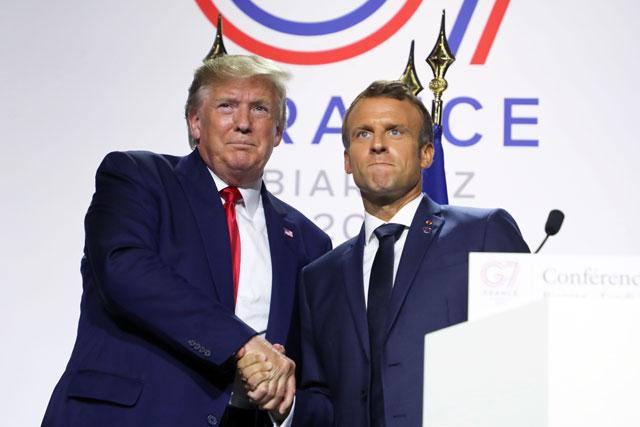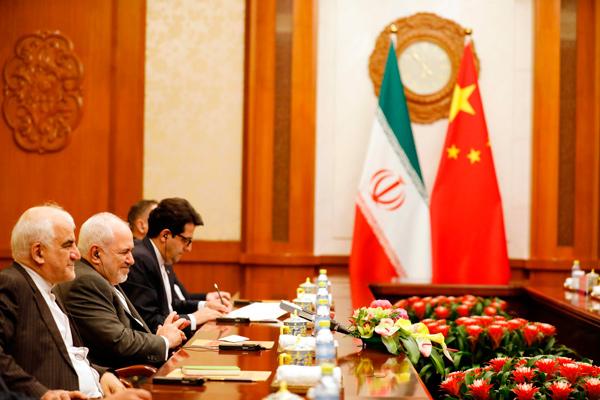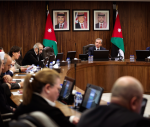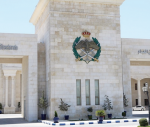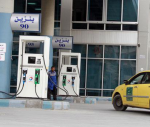You are here
Iran foreign minister makes surprise visit to G-7 summit
By AFP - Aug 25,2019 - Last updated at Aug 25,2019
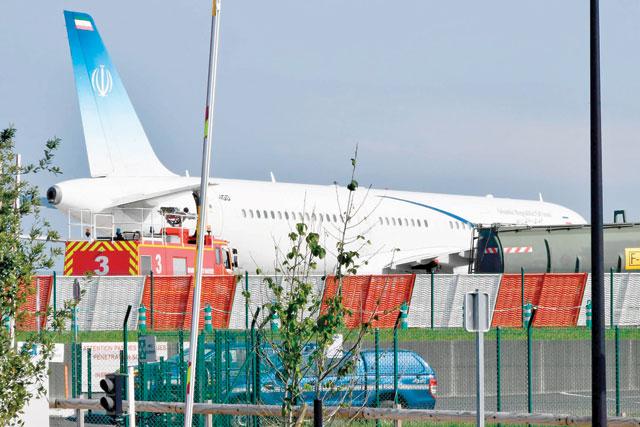
The airplane which carried Iran's Foreign Minister Mohammad Javad Zarif stands on the tarmac at the airport of the French seaside resort of Biarritz, southwest France, during the G-7 summit in Biarritz, on Sunday, on the second day of the annual summit (AFP photo)
BIARRITZ, France — Iranian Foreign Minister Mohammad Javad Zarif flew into Biarritz in southwestern France for the G-7 summit on Sunday in an unexpected and dramatic attempt to break a diplomatic deadlock over Tehran's disputed nuclear programme.
Zarif's presence had not been announced and represented a risky attempt by French host Emmanuel Macron to find a way to soothe spiralling tensions between Iran and the United States.
He was not expected to hold face-to-face talks with US President Donald Trump, but the presence of the two men in the same place sparked hopes of a detente.
Zarif will “continue talks regarding the recent measures between the presidents of Iran and France”, Iranian Foreign Ministry spokesman Abbas Mousavi tweeted, after flight tracking sites spotted that Zarif’s plane had landed in Biarritz.
The French presidency confirmed his arrival, but emphasised no talks were planned with the American side.
A French diplomat also suggested — without confirming — that Trump had been made aware of the arrival during an impromptu two-hour lunch with Macron on a hotel terrace on Saturday.
“We work with full transparency with the Americans,” the diplomat told reporters on condition of anonymity.
Also speaking in Biarritz, US Treasury Secretary Steven Mnuchin said that Trump had in the past said that if Iran “wants to sit down and negotiate he will not set preconditions”.
‘Moving in right direction’
Macron held talks with Zarif in Paris on the eve of the G-7 summit and has been leading efforts to bring Tehran and Washington back to the negotiating table.
Trump’s policy of applying “maximum pressure” on Tehran via crippling sanctions has been criticised by European powers and is seen as raising the risk of conflict in the Middle East.
Macron has urged the US administration to offer some sort of relief to Iran, such as lifting sanctions on oil sales to China and India, or a new credit line to enable exports.
“To start this approach we need President Trump to agree with the idea that we need to make a pause [in the ‘maximum pressure’ policy],” a French diplomat told reporters last week.
This is seen as a first step to get Iran back to the negotiating table, which could then lead to a new international agreement to limit its nuclear programme.
Speaking to AFP last week, Zarif said that Macron’s suggestions were “moving in the right direction, although we are not definitely there yet”.
Last year, Trump unilaterally pulled the US out of a landmark deal, of which Zarif had been a key architect, on the nuclear programme reached in 2015 between Iran, the US, European powers, Russia and China.
Trade war doubts?
Trump proclaimed Sunday that the G-7 summit was going “beautifully”, but there was no masking over cracks between the US president and his allies on many issues.
Leaders of the G-7 countries — Britain, Canada, France, Germany, Italy, Japan and the United States — put on a united front as they spent a second day in the high-end French surfing town of Biarritz.
Trump arrived in Biarritz fresh from having drastically upped the ante in the trade war with China.
European leaders lined up to press for caution and on Sunday Trump gave a glimmer of hope that he was reconsidering his all-or-nothing approach to the dispute between the world’s two biggest economies.
Asked whether he was having second thoughts about the trade war, Trump, in a rare moment of public self-doubt, replied: “I have second thoughts about everything.”
Then in an extraordinary turnaround, Trump’s spokeswoman Stephanie Grisham said just hours later that the president had been understood.
He did have regrets, she said, but not what everyone thought.
“He regrets not raising the tariffs higher,” she explained.
At a breakfast meeting, British Prime Minister Boris Johnson became the latest of the G-7 partners to urge Trump to step back from a trade war that critics fear could tip the world economy into recession.
“Just to register a faint, sheep-like note of our view on the trade war — we are in favour of trade peace on the whole,” Johnson told Trump.
Bashing the EU
The meeting with Johnson, who is sometimes compared to a British version of the populist, nationalist Trump, underlined the White House’s dislike for the powerful European Union.
Trump has repeatedly threatened the EU with trade wars and right before his departure from Washington he warned that he would slap wine import tariffs on France if Macron does not retreat on a tax against US tech giants.
The jovial breakfast with Johnson, who is trying to steer the Brexit process taking Britain out of the EU, emphasised that budding new alliance.
Predicting that Johnson would manage to untangle the mess of Brexit, Trump described in typically undiplomatic terms the EU as “an anchor around their ankle”.
The 73-year-old US leader then promised Johnson a “very big trade deal, bigger than we’ve ever had”.
Related Articles
BIARRITZ, France — US President Donald Trump and EU leaders exchanged trade war threats on Saturday as they arrived in France for a G-7 summ
BIARRITZ, France — US President Donald Trump said he was prepared to meet his Iranian counterpart Hassan Rouhani in the next few weeks after
BEIJING — Iranian Foreign Minister Mohammad Javad Zarif kicked off his Asian tour in Beijing on Monday, presenting a 25-year plan to cement&



